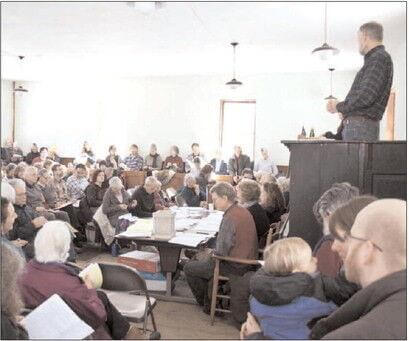Through attending decades of Vermont Town Meetings, I learned that effective facilitation requires respect.
For over two hundred years, my little hometown of Marlboro, Vermont, met at least once a year for “town meeting”: a form of local government where every eligible resident can directly participate in town governance. At our main annual town meeting, we discussed and voted on published agendas that included the town and school budgets and many other articles. Debate, facilitated by a town moderator, was common, people made amendments and voted on them, and the meetings (one for the town and one for the school) could last most of the day.

In my experience, though people in the room had different points of view, town meetings worked as well as they did because our town moderator respected everyone present and, for the most part, town residents respected each other. We remembered that the folks around us were our neighbors. They were people who, if we needed help, would be there for us despite our disagreements about politics and other issues. Sometimes votes wouldn’t go how we liked, yet we shrugged and moved on.
We could listen and make (sometimes) painful decisions because our moderator modeled respect and we respected each other despite our differences.
Facilitation and respect
So, how can we cultivate respect in facilitation?
As a facilitator, I sometimes struggle to keep my opinions of the sayer and what’s said and the sayer to myself. It can be hard to shut up and listen when facilitating, and I’m occasionally tempted to offer unsolicited advice.
However, I’ve learned that listening is a gift you can’t fully give when you don’t respect the person you’re listening to. Effective facilitation is inherently rooted in showing respect to each individual involved. A facilitator needs to respect diverse perspectives and honor the contributions of each participant. This involves active listening—truly tuning in to what others are saying without judgment or interruption.
Respectful facilitation also involves fostering inclusivity and fairness. It means ensuring everyone has an equal opportunity to speak and participate, regardless of status or background.
In essence, effective facilitation is a delicate dance between structure and empathy, where respect serves as a guiding principle. When participants feel respected, they are more likely to engage authentically, share ideas openly, and collaborate productively.
A perspective from meditation practice
Meditation practice can teach us how to cultivate mindful respect. Recently, one of my meditation teachers, Helen Narayan Liebenson, has been speaking about respect from a Buddhist perspective.
One concept she shared is “loosening judgment”. We continually interpret our sensed experience. When this involves listening to others, we may judge them or what they say. Some form of judgment is, perhaps, inescapable, but when we notice it we can practice loosening judgment: moving away from judgment and towards direct experience of another.
She also described performing an “inner bow“. This is a way of honoring either another or oneself, a conscious intention derived from an external act of respect: the act of bowing to another.
Ultimately, such language only points to the action to convey. Listening, loosening judgment, or performing an inner bow are ways to treat others with respect. All of these actions are intertwined and reinforce each other in the process.
Postscript
Marlboro abandoned traditional town meetings at the start of the COVID pandemic in 2020. My town has not readopted them, though many Vermont towns still practice this form of local government. We’ve switched to voting on articles via Australian ballot so there are no more large spring gatherings, debates, or amendments. I appreciate that our new form of government allows all eligible residents to vote, rather than only those who attend an in-person meeting. But I miss meeting with townsfolk and discussing our town’s direction and future together.
No matter our differences, I hope we continue to respect our neighbors, in the same way effective facilitators respect those with whom we work.
Photograph attribution: People filling the Marlboro (Vermont) Town House for the 2012 Town Meeting by Zachary P. Stephens/Reformer.

